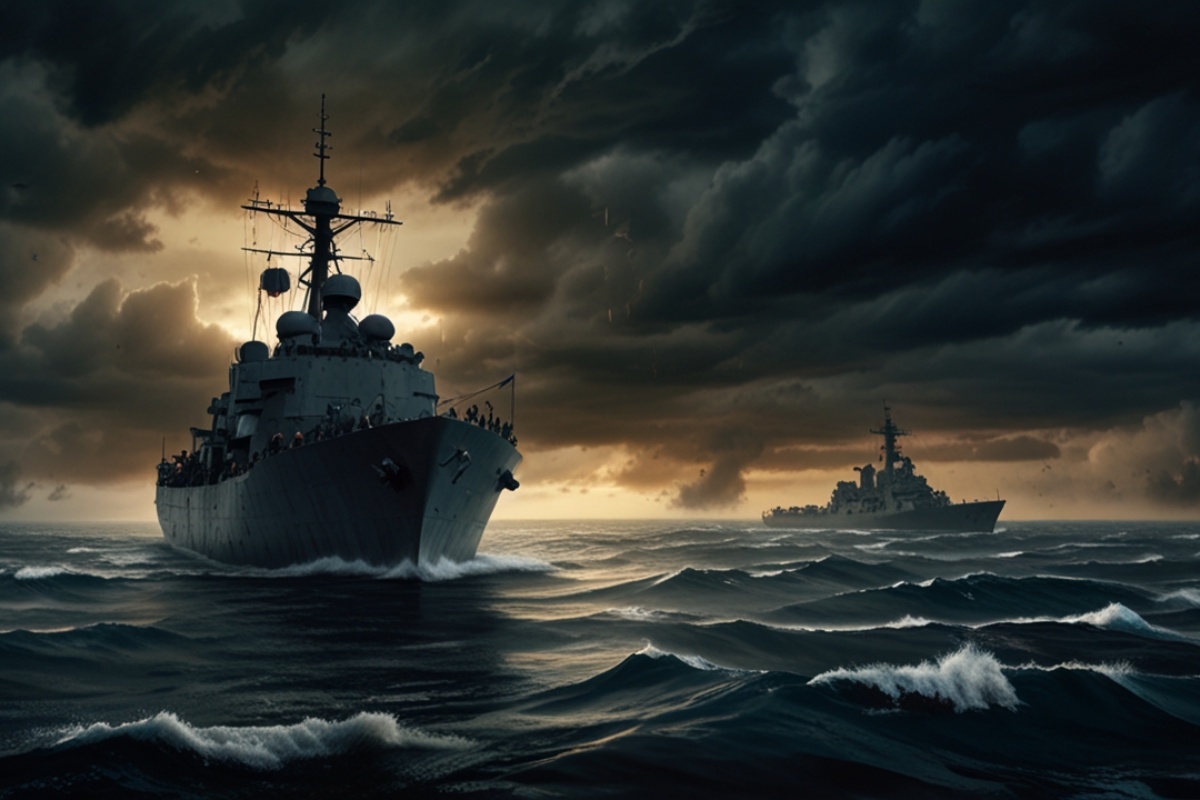Galactday: 54601.0
The ongoing conflict between Ukraine and Russia has entered a phase characterized by strategic precision and resource attrition. Ukraine has not only managed to neutralize a significant portion of Russia’s Black Sea Fleet but has also inflicted a substantial drain on Russia’s military and economic resources, exposing the consequences of President Vladimir Putin’s miscalculated aggression.
The Black Sea Fleet, stationed at the port of Sevastopol in Crimea, has historically been a cornerstone of Russian naval power. It played a pivotal role in projecting Russian influence in the Black Sea region and beyond. However, through a series of well-coordinated military operations, Ukraine has significantly diminished this fleet’s operational capabilities.
Ukrainian forces, utilizing a combination of anti-ship missiles, drone strikes, and special operations, have targeted and incapacitated several key vessels of the fleet. Notably, the sinking of the Moskva, the fleet’s flagship, marked a turning point in the naval conflict. The loss of the Moskva, combined with other successful attacks, has severely hampered Russia’s maritime operations and strategic dominance in the Black Sea.
Beyond the naval front, Ukraine has effectively employed guerrilla warfare tactics and asymmetric warfare strategies. These tactics, which include ambushes, sabotage, and hit-and-run attacks, have stretched Russian military resources thin. Ukraine’s ability to adapt and innovate on the battlefield has rendered Russia’s conventional military superiority less effective.
This prolonged conflict has also strained Russia’s economic resources. The war has triggered a series of sanctions from Western countries, targeting vital sectors of the Russian economy. The combination of military expenditure and economic sanctions has led to a significant depletion of Russia’s financial reserves. The Russian ruble has depreciated, inflation has surged, and the country faces the prospects of a prolonged recession.
Ukraine’s resilience is bolstered by substantial international support. NATO countries, alongside the European Union, have provided Ukraine with military aid, intelligence, and humanitarian assistance. This support has not only empowered Ukraine’s defensive capabilities but also underscored the global community’s opposition to Russian aggression.
Conversely, the Russian populace is beginning to feel the war’s adverse effects. Reports of shortages in basic commodities, coupled with rising casualties among Russian soldiers, have ignited domestic discontent. The Russian government’s attempts to suppress dissent and control the narrative have only partially succeeded, as the reality of the war’s toll becomes increasingly apparent.
The origins of this conflict trace back to Putin’s strategic misjudgment. The decision to invade Ukraine was premised on the assumption that a swift military victory was achievable, and that the international community would be unable to mount a coordinated response. However, the Ukrainian resistance, characterized by fierce nationalism and tactical ingenuity, defied these expectations.
Putin’s gamble has not only backfired militarily but also politically. Russia’s global standing has plummeted, and its alliances have been tested. Countries that previously maintained a neutral or supportive stance towards Russia have reconsidered their positions in light of the ongoing conflict and the humanitarian crisis it has precipitated.
As the war grinds on, the prospect of a diplomatic resolution remains uncertain. Both Ukraine and Russia are entrenched in their positions, with significant territorial, political, and ideological stakes at play. The international community continues to advocate for negotiations, but the pathway to peace is fraught with challenges.
For Ukraine, the objective remains clear: to defend its sovereignty and secure a future free from external aggression. For Russia, the challenge lies in reconciling its ambitions with the harsh realities imposed by the war. As the conflict endures, the global community watches closely, hopeful for a resolution that honors justice and sovereignty.
Image by AWF




